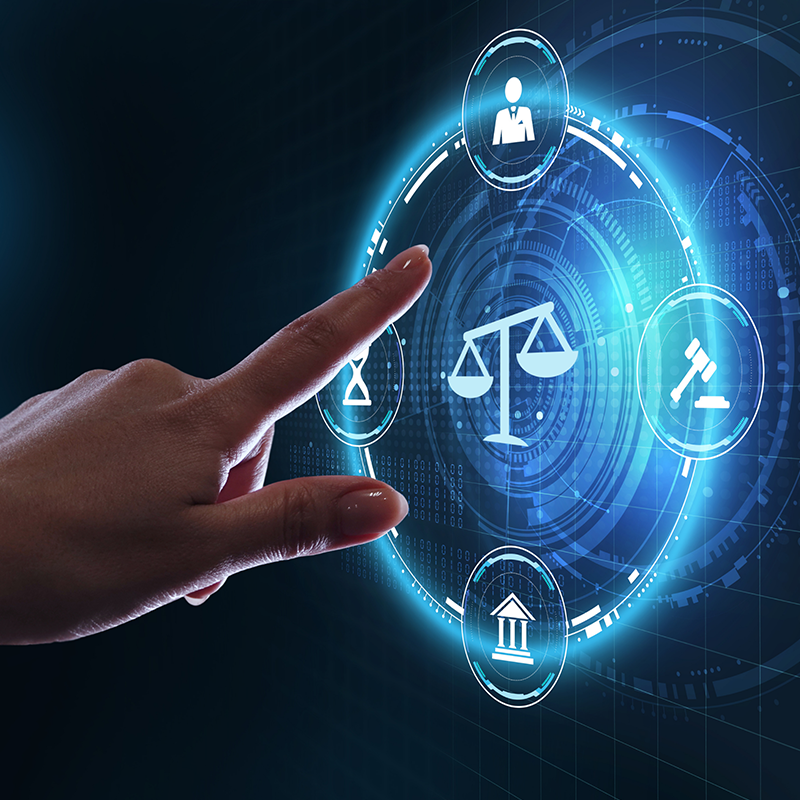Redefining Legal Hierarchies
How AI Empowers Juniors to Deliver Associate-Level Work
For as long as most people can remember, law firms have operated on a simple truth: experience equals value. The longer you’ve been in the game, the more you can charge for your time. The hierarchy has been clear – partners at the top, associates in the middle, juniors learning the ropes, and everyone else supporting the machine.
But something’s shifting. AI, and particularly Microsoft Copilot, is starting to change what it means to “gain experience.” Juniors can now produce work that looks and feels like it came from someone several years ahead of them.
The Levelling Effect of AI
Traditionally, juniors learned by repetition. Draft the same clause fifty times. Summarise cases. Proof documents. Check formatting. The goal was accuracy, not speed, and every error was a lesson. AI turns that model on its head.
A well-prepared junior using Copilot can now start with a blank document, ask it to draft a clause based on precedent, summarise a 40-page contract, or cross-reference key points across case notes in seconds. It’s not about replacing judgment – it’s about giving them a head start. They can now reach a first draft that used to take an associate an afternoon, and spend their energy refining and understanding rather than formatting and searching.
That’s the levelling effect in action. AI doesn’t give someone five extra years of experience. It gives them access to the insight that would have taken five years to accumulate.


From Supervision to Enablement
One of the biggest mindset shifts we see when running adoption programmes inside law firms is that partners and senior associates stop being the sole bottleneck for quality control. With the right guardrails in place, juniors can safely handle more complex work under supervision, not because the firm is cutting corners, but because the technology supports them at every stage.
Imagine a junior associate preparing a client briefing note. Instead of waiting two days for feedback, they can use Copilot to check tone, clarity, and completeness against firm templates. It’s like having an invisible coach sitting next to them, helping them phrase things the way the firm wants.
That doesn’t remove the need for supervision. It makes it more strategic. Partners spend less time correcting commas and more time mentoring judgment, nuance, and client care – the things that actually define great lawyers.
The Productivity Multiplier
Every firm wants to talk about efficiency, but the real value of AI in legal work isn’t just faster output. It’s about multiplying the impact of human potential.
The time savings are real, but the cultural change is where the real advantage sits. Firms that embrace AI early are building a generation of lawyers who think differently – who understand that technology isn’t a threat, but an amplifier.
Adoption Makes the Difference
The mistake many firms make is assuming that Copilot is plug-and-play. It isn’t. Giving someone the tool is one thing. Guiding them through structured adoption is another.
At First AI, we spend a lot of time helping firms build Copilot adoption programmes that focus on capability, confidence, and compliance. The best results always come from those who invest in equipping their juniors early.
When juniors go through adoption programmes and agent discoveries, everything above them gets faster and better. Associates get higher-quality drafts to review. Partners see more polished outputs earlier in the process. Clients get quicker turnaround and more value for money.
That’s what we call the “champion effect.” When you empower juniors to become confident Copilot users, the entire firm benefits.

Addressing the Concerns
It’s natural for some partners to feel uneasy about juniors producing associate-level work through AI. The questions come up every time we deliver a discovery:
What about quality control?
What if they rely on it too much?
What about data confidentiality?
These are fair and important questions, and they’re exactly why structured adoption programmes matter. A strong programme doesn’t just teach people prompts. It sets the governance, the policy, and the confidence to know what’s in bounds and what’s not.
We work with firms to create internal AI playbooks, approved prompt libraries, and scenario-based agent discoveries that reflect real legal work. That’s how you make AI safe and scalable, without compromising compliance or reputation.
A New Era of Mentorship
Here’s the interesting part: when juniors start using AI to take care of the mechanical work, they have more time for real mentorship. Instead of drowning in admin, they can shadow client calls, join strategy discussions, or explore new areas of law.
AI gives them breathing room to learn faster. It also gives partners a new opportunity to teach what really matters – how to think like a lawyer, not just how to draft like one.
When we deliver adoption programmes, that’s what excites people most. Seeing a trainee light up because they finally understand the “why” behind the work, not just the “what.”


Redefining the Hierarchy
AI isn’t flattening the hierarchy – it’s redefining it. It’s no longer a straight line from trainee to partner based on years served. It’s becoming a network of capability, where skill, curiosity, and adaptability matter just as much as experience.
That’s a huge cultural shift, and it’s happening faster than most people think. The firms that succeed will be the ones that see AI not as a threat to tradition, but as a tool to unlock potential.
Because the truth is, a junior equipped with the right adoption programme and the right Copilot agent can already deliver work at a level that would have been unthinkable a few years ago. The question for firms isn’t if they’re ready for that. It’s how they’ll use it to their advantage.
AI won’t replace legal expertise, but it will transform how experience is gained.
AI won’t replace the experience and judgment that define great lawyers. But it will redefine how that experience is gained, shared, and scaled across a firm.
At First AI Group, we help legal teams build the capability, confidence, and governance they need to make that happen – through structured Copilot adoption programmes, firmwide agent discoveries, and tailored AI enablement frameworks designed specifically for legal practice.
If you’re serious about empowering your juniors and future-proofing your firm, now’s the time to start.
Let’s talk about what AI-enabled excellence looks like inside your practice.
